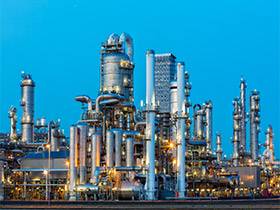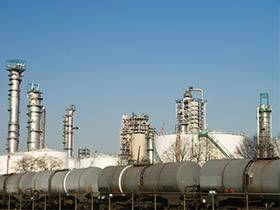Typically used in refining, petrochemical and other chemical plants, inert balls are small, compact spheres created to provide support to catalyst beds. They are mainly used for covering the materials, reaction vessels, converters, and absorption towers. They also assist in distribution flow optimization through the catalysts and act as adsorbents or at times catalysts as well. Manufactured with either alumina or ceramic as base materials, inert balls are characterized by their high resistance to temperature changes, pressure, and corrosion from other solvents.
High-quality catalyst bed support media can maximize the processing effectiveness of raw materials by encouraging chemical distribution and flow within the converter. Inert alumina and ceramic balls also provide protection to the refining equipment and catalyst from potential damage or contamination. The inert and support balls deal with common issues these industries have through the following: avoid plugging the bed or catalysts during production, lessen pressure drops on temperature cycling, and prevent poisoning of the catalysts. Addressing these concerns not only cuts operating expenses by a huge amount, but it also ensures consistent and top-grade production for a maximized profit.
Chempack offers a wide range of catalyst bed support media in the form of inert alumina balls, inert ceramic balls, and activated alumina bed support balls. Each inert ball type is made using carefully selected materials and a proprietary manufacturing process. Our research and development team guarantees to give only the highest of quality, density, and purity of products. Customized options are also available to meet specific support needs the industry or refinery is encountering.
Chempack’s lines of inert balls are built using a combination of the finest raw materials and advanced processes. These special manufacturing processes give high compression strength and high tolerance to thermal shock. Having a high compression value and thermal shock resistance ensures that the balls do not break from sudden changes in pressure or temperature, allowing for longer use and temperature control.
The use of choice materials, on the other hand, ensures that the catalyst will not be plugged or poisoned. Catalyst poisoning gravely reduces or nullify the effectiveness of the catalysts, which can cause the entire process to stop and requiring repairs and replacements for the equipment.
Chempack has developed a special manufacturing method to create inert balls that have high compression strength. Each 25mm inert ball has more than 10KN of crush strength, making sure they can withstand a lot of pressure before cracking. High compression strength lowers the risk of inert balls from plugging or contaminating the catalysts and the processing equipment. This helps to maintain high catalyst activity while extending the life of the catalysts and reaction equipment.
Chempack‘s bed support media from responds extremely well when exposed to sudden and constant thermal cycling. While lesser-quality products would chip, break and disintegrate when exposed to sudden changes in temperature, our inert balls have shown to handle up to 1500 degrees. Having a high tolerance to temperature changes gives the ability to control pressure drops in reactors during refining and filtration process. This, in turn, results in an optimized working process and better product output.
Chempack only uses well-selected materials, along with monitored processing and checking, to produce inert balls that have the highest quality. These inert balls do not contain possible catalyst poisons like sulfur and boron and have very low silica and iron contents. Ruling out catalyst poisoning from the inert balls give a guarantee that the catalysts will remain pure and effective during processing. This also lowers costs for repairs, replacements, or shutdowns due to the poisoned catalysts.

Inert balls to support the downstream of catalyst processing in oil refining.

Bed support balls to safeguard the petrochemical catalyst processing.

Catalyst bed support for basic chemical like chemical fertilizer production.

Protect the catalyst activity to allow for effective environmental process.